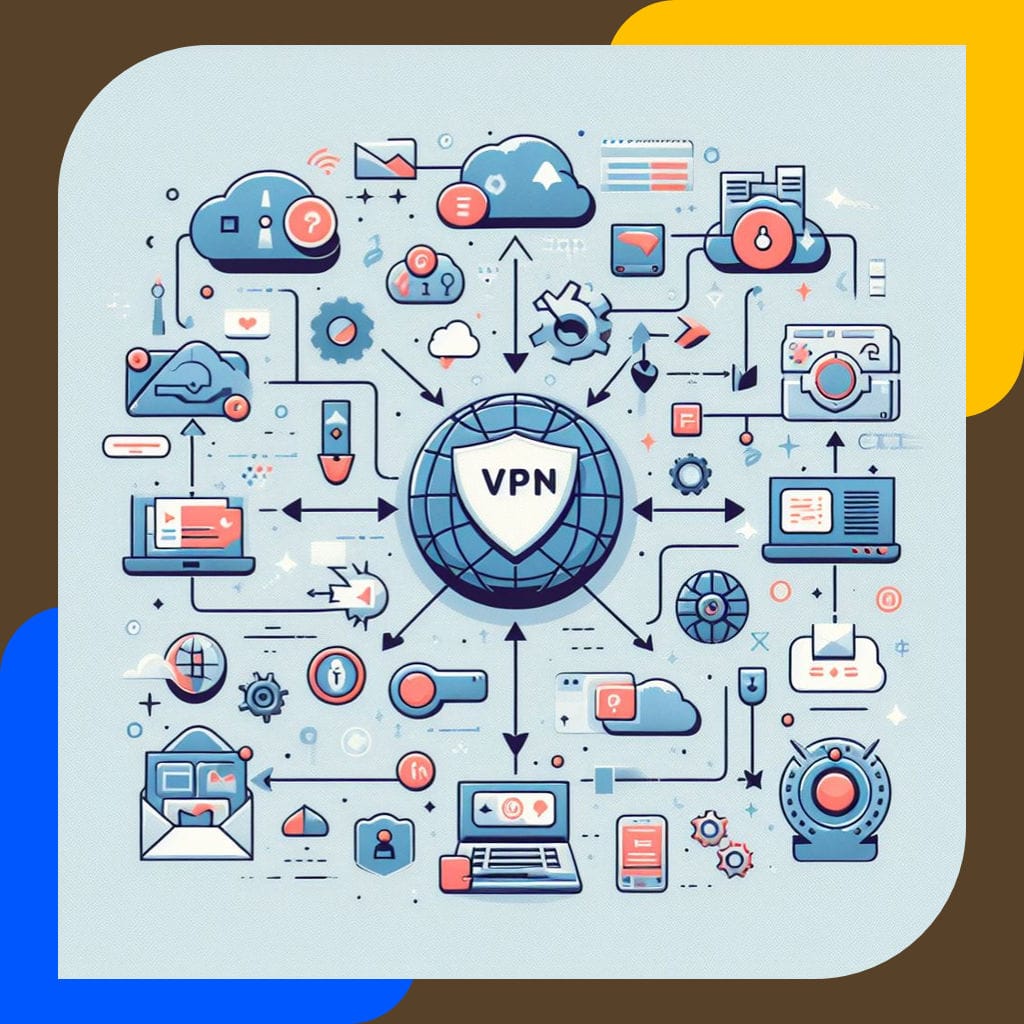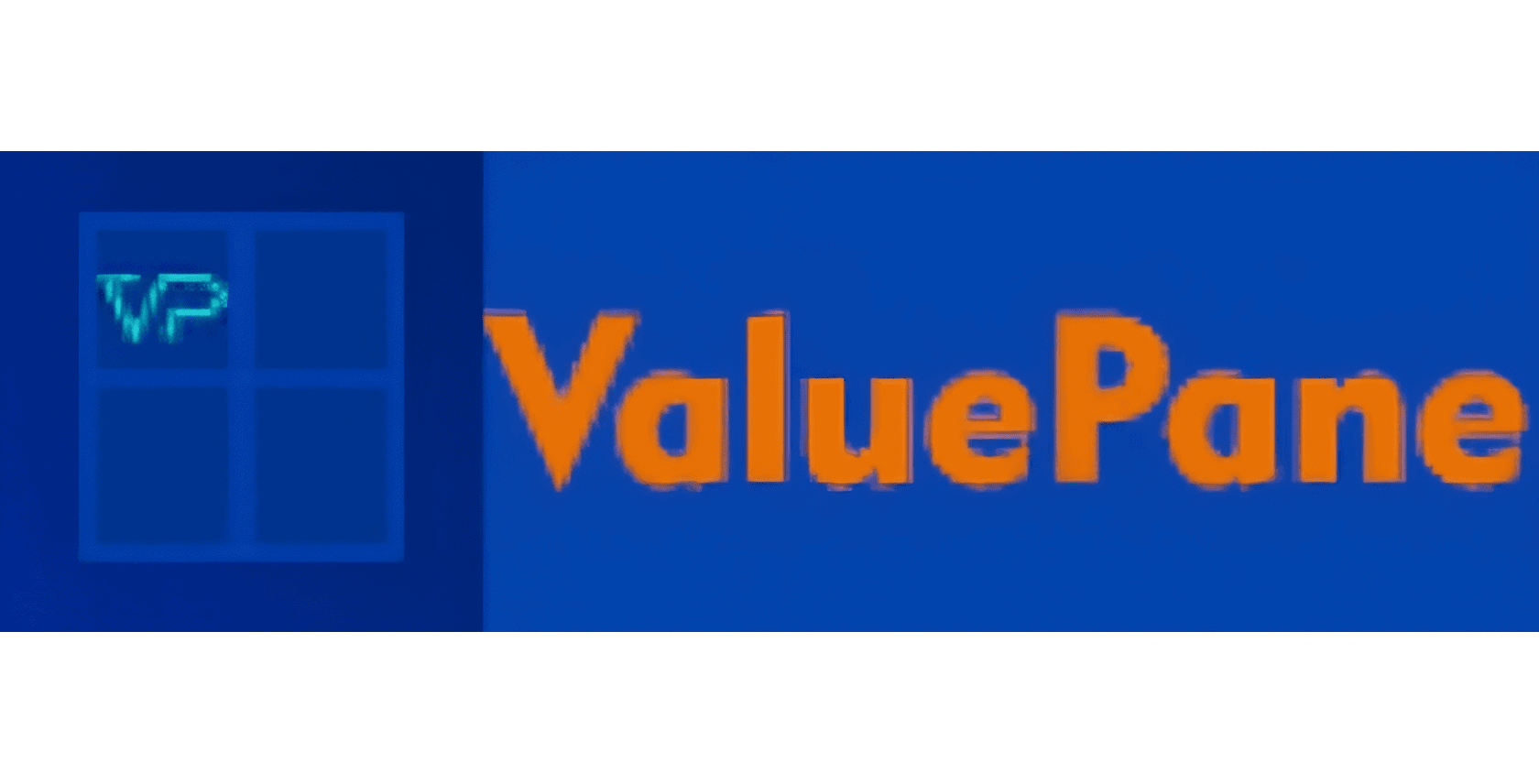In the previous blog post, we discussed what VPNs are, how they work, and why you need one. However, not all VPNs are created equal. There are hundreds of VPN service providers in the market, offering different features, prices, and quality.
How should you choose the best VPN service for your privacy and security needs? How do you find a trustworthy and affordable VPN that meets your expectations and goals?
That’s what this blog post is all about. In this post, we will provide you with information to decide upon and choose the best VPN service for your privacy and security, based on your needs and preferences.
We will cover the following aspects:
- The key factors to consider when choosing a VPN.
- The additional considerations to keep in mind when choosing a VPN for privacy.
- The recommended free and low-cost VPNs for individuals and small businesses.
- The premium VPNs for organizations with more demanding needs.
By the end of this post, you will have a clear idea of how to choose the best VPN service for your privacy and security, and what to look for in a VPN provider. Let’s get started.

Table of Contents
Key Factors to Consider When Choosing a VPN Service
Choosing a VPN service is not a simple task. There are many factors to consider, and each factor may have a different weight depending on your needs and goals. However, there are some key factors that are essential for any VPN user, and that you should always prioritize when choosing a VPN. These factors are:
- Reputation and logging policy: The reputation and logging policy of a VPN provider are crucial for your privacy and security. You want to choose a provider that has a strong track record of protecting user data and a strict no-logs policy. A no-logs policy means that the provider does not collect, store, or share any information about your online activities, such as your IP address, browsing history, or bandwidth usage. This way, you can be sure that your data is safe and secure, and that no one can access it or use it against you. To check the reputation and logging policy of a VPN provider, you can:
- Read their privacy policy and terms of service carefully, and look for any red flags or loopholes.
- Research their history and background, and see if they have been involved in any scandals or controversies.
- Consult independent reviews and audits, and see what other users and experts say about them.
- Avoid providers that are based in countries with strict data retention laws or surveillance programs, such as the 14 Eyes Alliance 8
- Features: The features of a VPN provider are important for your security and performance. You want to choose a provider that offers essential features that enhance your online experience and protect you from various threats. Some of the features that you should look for in a VPN provider are:
- Strong encryption: Encryption is the process of converting your data into a code that only you and the VPN server can read. Encryption protects your data from anyone who might want to see it or tamper with it. You want to choose a provider that uses strong encryption protocols, such as AES-256, which is the industry standard and the most secure encryption available.
- Kill switch: A kill switch is a feature that automatically disconnects your device from the internet if your VPN connection drops. This prevents your data from being exposed or leaked to anyone who might be monitoring your network. You want to choose a provider that has a reliable and effective kill switch, and that allows you to customize it according to your needs.
- Leak protection: Leak protection is a feature that prevents your data from leaking outside the VPN tunnel. There are different types of leaks that can compromise your privacy and security, such as DNS leaks, WebRTC leaks, and IPv6 leaks. You want to choose a provider that has leak protection mechanisms, such as DNS servers, WebRTC blockers, and IPv6 support, and that allows you to test them regularly.
- A good selection of servers: The number and location of servers that a VPN provider has are important for your speed and access. You want to choose a provider that has a large and diverse network of servers, covering different regions and countries. This way, you can enjoy faster and more stable connections, and access any content that you want or need, regardless of where you are or where the content is.
- Server locations: The server locations of a VPN provider are important for your access and performance. You want to choose a provider that has servers in the locations that you need to access content or bypass restrictions. For example, if you want to watch a show that is only available on Netflix US, you need to choose a provider that has servers in the US. If you want to bypass censorship in China, you need to choose a provider that has servers in countries that are not blocked by the Great Firewall. The server locations of a VPN provider also affect your speed and performance, depending on the distance between your device and the server. The closer the server is to your location, the faster and more stable your connection will be. The farther the server is from your location, the slower and more unstable your connection will be. To optimize your server locations, you can:
- Choose a provider that has servers in the locations that you need to access content or bypass restrictions.
- Choose a provider that has servers in the locations that are close to your location or have good network infrastructure.
- Use the VPN app’s features, such as auto-connect, smart location, or best server, to automatically select the best server for you.
- Speed and performance: The speed and performance of a VPN provider are important for your online experience and satisfaction. You want to choose a provider that offers fast and consistent connections, without compromising your security or quality. However, speed and performance are not absolute or fixed, but relative and variable. They depend on various factors, such as the distance between your device and the server, the encryption protocol, the server load, and the network congestion. To balance speed, security, and cost, you can:
- Choose a provider that uses fast and secure encryption protocols, such as OpenVPN, WireGuard, or IKEv2.
- Choose a provider that has a good selection of servers, and avoid peak hours or high-demand locations.
- Choose a provider that offers different plans and options, and select the one that suits your needs and budget.
- Test the speed and performance of different providers and servers, and compare the results.
- Device compatibility: The device compatibility of a VPN provider is important for your convenience and flexibility. You want to choose a provider that supports your devices and operating systems, and allows you to use the VPN on multiple devices at the same time. This way, you can enjoy the benefits of a VPN on all your devices, such as your PC, laptop, smartphone, tablet, or smart TV. To ensure device compatibility, you can:
- Choose a provider that has dedicated apps for your devices and operating systems, such as Windows, Mac, Android, iOS, Linux, or Fire TV.
- Choose a provider that allows you to install the VPN manually on your devices, such as routers, gaming consoles, or smart devices.
- Choose a provider that offers a generous number of simultaneous connections, and allows you to share your VPN account with your family or friends.
- Customer support: The customer support of a VPN provider is important for your assistance and satisfaction. You want to choose a provider that has responsive and helpful customer service, and that offers various ways to contact them, such as email, chat, phone, or ticket. This way, you can get the support that you need, whenever you need it, and resolve any issues or questions that you might have. To evaluate customer support, you can:
- Read user reviews and testimonials, and see what other customers say about their experience with the provider.
- Contact the provider yourself, and see how fast, friendly, and helpful they are.
- Check the provider’s website and social media, and see how active, informative, and engaging they are.
These are the key factors that you should consider when choosing a VPN. However, these are not the only factors that you should consider. There are some additional considerations that you should keep in mind when choosing a VPN, which we will discuss in the next section.
Additional Considerations
Besides the key factors that we discussed in the previous section, there are some additional considerations that you should keep in mind when choosing a VPN. These considerations are not as essential or universal as the key factors, but they can still affect your privacy and security, depending on your needs and goals. These considerations are:
- Geo-location and country regulations: The geo-location and country regulations of a VPN provider can impact your data privacy and security, depending on where the provider is based and where the servers are located. Some countries have strict data retention laws or surveillance programs that require VPN providers to collect, store, or share user data with the authorities. Some countries also have internet restrictions or censorship that prevent VPN providers from operating or offering certain services. To avoid these risks, you can:
- Choose a provider that is based in a country that respects data privacy and does not have data retention laws or surveillance programs, such as Switzerland, Panama, or the British Virgin Islands 8.
- Choose a provider that has servers in countries that have good network infrastructure and do not have internet restrictions or censorship, such as the US, the UK, or Canada.
- Check the provider’s jurisdiction and server locations, and see how they might affect your data privacy and security.
- Independent reviews and audits: The independent reviews and audits of a VPN provider can help you verify their claims and performance. Independent reviews and audits are conducted by third-party organizations or experts, who evaluate the provider’s features, quality, and reliability. They can also test the provider’s security, speed, and privacy, and reveal any issues or flaws that they might have. To benefit from independent reviews and audits, you can:
- Read independent reviews and audits from trusted sources, such as CyberNews, PCMag, or TechRadar.
- Compare the results and ratings of different providers and servers, and see how they match your expectations and goals.
- Look for providers that have undergone independent audits and have published their results, such as NordVPN, ExpressVPN, or ProtonVPN.
These are the additional considerations that you should keep in mind when choosing a VPN. However, these are not the only considerations that you should keep in mind. There are other factors that might be relevant or important for you, depending on your specific needs and goals. Therefore, you should always conduct thorough research and consider trial periods before committing to a VPN service.
Recommended Free and Low-Cost VPNs for Individuals and Small Businesses
Now that we have discussed the factors and considerations that you should keep in mind when choosing a VPN, let’s look at some of the best VPN services that are available for individuals and small businesses. These VPN services are free or low-cost, but they still offer good features, quality, and reliability. They are suitable for casual or occasional VPN users, who need a VPN for basic or moderate needs, such as browsing, streaming, or downloading. Here are some of the recommended free and low-cost VPNs for individuals and small businesses:
- ProtonVPN: ProtonVPN is a VPN service that is developed by the same team behind ProtonMail, a secure and encrypted email service. ProtonVPN offers a free plan that has no data or speed limits, and allows you to access servers in three countries: the US, the Netherlands, and Japan. ProtonVPN also offers paid plans that start from $4 per month, and allow you to access more servers, features, and devices. ProtonVPN has a strong reputation and a strict no-logs policy, and uses AES-256 encryption, OpenVPN protocol, and a kill switch. ProtonVPN also has some unique features, such as Secure Core, which routes your traffic through multiple servers for extra security, and Tor over VPN, which allows you to access the Tor network with one click.
- Betternet: Betternet is a VPN service that offers a free plan that gives you unlimited data, but allows you to access servers in only one country, the US. Betternet also offers a paid plan that costs $11.99 per month, or $2.99 per month if you pay for three years in advance. Betternet allows you to access servers in 10 countries, and supports up to six devices at the same time. Betternet has a decent reputation and a no-logs policy, and uses AES-256 encryption, OpenVPN protocol, and a kill switch.
- ZenMate: ZenMate is a VPN service that offers a free plan that gives you unlimited data, but allows you to access servers in only four countries: the US, Germany, Romania, and Hong Kong. ZenMate also offers a paid plan that costs $10.99 per month, or $1.64 per month if you pay for three years in advance. ZenMate allows you to access servers in 74 countries, and supports up to five devices at the same time. ZenMate has a good reputation and a no-logs policy, and uses AES-256 encryption, OpenVPN protocol, and a kill switch. ZenMate also has some unique features, such as Smart Locations, which automatically connects you to the best server for your needs, and Streaming Guarantee, which ensures that you can access your favorite streaming services.
- Windscribe: Windscribe is a VPN service that offers a generous free plan that gives you 10 GB of data per month, and allows you to access servers in 10 countries, including the US, the UK, and Canada. Windscribe also offers paid plans that start from $4.08 per month, and allow you to access more servers, features, and devices. Windscribe has a good reputation and a no-logs policy, and uses AES-256 encryption, OpenVPN protocol, and a kill switch. Windscribe also has some unique features, such as R.O.B.E.R.T., which blocks ads, trackers, malware, and phishing, and Windflix, which allows you to access Netflix from any server.
- Privado: Privado is a VPN service that offers a free plan that gives you 10 GB of data per month, and allows you to access servers in 12 countries, including the US, the UK, and Germany. Privado also offers paid plans that start from $4.99 per month, and allow you to access more servers, features, and devices. Privado has a good reputation and a no-logs policy, and uses AES-256 encryption, OpenVPN protocol, and a kill switch. Privado also has some unique features, such as Zero-Knowledge DNS, which prevents DNS leaks and protects your privacy, and SOCKS5 Proxy, which allows you to use the VPN with applications that do not support VPN protocols.
- Hide.me: Hide.me is a VPN service that offers a free plan that gives you 10 GB of data per month, and allows you to access servers in five countries: the US, the Netherlands, Canada, Singapore, and Germany. Hide.me also offers paid plans that start from $4.99 per month, and allow you to access more servers, features, and devices. Hide.me has a good reputation and a no-logs policy, and uses AES-256 encryption, OpenVPN protocol, and a kill switch. Hide.me also has some unique features, such as Split Tunneling, which allows you to choose which apps or websites use the VPN, and Stealth Guard, which allows you to block all internet traffic except for the VPN.
These are some of the recommended free and low-cost VPNs for individuals and small businesses. However, these are not the only VPNs that are available for this category. There are other VPNs that might suit your needs and preferences, such as TunnelBear, Hotspot Shield, or ZenMate. You can check out their features, prices, and reviews, and see how they compare to the ones that we have mentioned.

Premium VPNs for More Demanding Needs
If you are an organization with more demanding needs, or an individual with streaming needs, such as high security, high performance, or high customization, you might need a premium VPN service that offers more features, quality, and reliability. These VPN services are more expensive, but they also offer more benefits, such as advanced security, fast and consistent connections, and dedicated support. They are suitable for professional or frequent VPN users, who need a VPN for complex or intensive needs, such as business, gaming, or torrenting. Here are some of the premium VPNs for large organizations:
- NordVPN: NordVPN is one of the most popular and trusted VPN services in the market, with over 14 million users worldwide. NordVPN offers a premium plan that costs $11.95 per month, or $3.71 per month if you pay for two years in advance. NordVPN allows you to access over 5,400 servers in 59 countries, and supports up to six devices at the same time. NordVPN has a strong reputation and a strict no-logs policy, and uses AES-256 encryption, OpenVPN protocol, and a kill switch. NordVPN also has some unique features, such as Double VPN, which routes your traffic through two servers for extra security, and CyberSec, which blocks ads, trackers, malware, and phishing.
- Perimeter 81: Perimeter 81 is a VPN service that is designed for businesses and organizations, with features and tools that cater to their needs and goals. Perimeter 81 offers a premium plan that costs $10 per month per user, or $8 per month per user if you pay for a year in advance. Perimeter 81 allows you to access over 700 servers in 35 countries, and supports unlimited devices per user. Perimeter 81 has a good reputation and a no-logs policy, and uses AES-256 encryption, OpenVPN protocol, and a kill switch. Perimeter 81 also has some unique features, such as Cloud VPN, which allows you to create and manage your own VPN network in the cloud, and Network Firewall, which allows you to control and monitor your network traffic and activity.
- ExpressVPN: ExpressVPN is another popular and trusted VPN service in the market, with over 10 million users worldwide. ExpressVPN offers a premium plan that costs $12.95 per month, or $6.67 per month if you pay for 15 months in advance. ExpressVPN allows you to access over 3,000 servers in 94 countries, and supports up to five devices at the same time. ExpressVPN has a strong reputation and a strict no-logs policy, and uses AES-256 encryption, OpenVPN protocol, and a kill switch. ExpressVPN also has some unique features, such as TrustedServer, which ensures that the servers run on RAM only and do not store any data, and MediaStreamer, which allows you to stream content on devices that do not support VPN protocols.
- TunnelBear: TunnelBear is a VPN service that is known for its simplicity and user-friendliness, with a cute and colorful interface and a mascot. TunnelBear offers a premium plan that costs $9.99 per month, or $4.99 per month if you pay for a year in advance. TunnelBear allows you to access over 2,500 servers in 23 countries, and supports up to five devices at the same time. TunnelBear has a good reputation and a no-logs policy, and uses AES-256 encryption, OpenVPN protocol, and a kill switch. TunnelBear also has some unique features, such as VigilantBear, which blocks all internet traffic if your VPN connection drops, and GhostBear, which disguises your VPN traffic as regular traffic to bypass VPN blocking.
- Surfshark: Surfshark is a VPN service that offers a low-cost plan that costs $12.95 per month, or $2.49 per month if you pay for two years in advance. Surfshark allows you to access over 3,200 servers in 65 countries, and supports unlimited devices at the same time. Surfshark has a good reputation and a no-logs policy, and uses AES-256 encryption, OpenVPN protocol, and a kill switch. Surfshark also has some unique features, such as CleanWeb, which blocks ads, trackers, malware, and phishing, and Whitelister, which allows you to exclude certain apps or websites from the VPN.
- PureVPN: PureVPN is a VPN service that offers a premium plan that costs $10.95 per month, or $3.33 per month if you pay for two years in advance. PureVPN allows you to access over 6,500 servers in 140 countries, and supports up to 10 devices at the same time. PureVPN has a good reputation and a no-logs policy, and uses AES-256 encryption, OpenVPN protocol, and a kill switch. PureVPN also has some unique features, such as Port Forwarding, which allows you to access remote devices or services, and Dedicated IP, which allows you to have a unique and static IP address.
- IPVanish: IPVanish is a VPN service that offers a premium plan that costs $9.99 per month, or $3.75 per month if you pay for a year in advance. IPVanish allows you to access over 1,600 servers in 75 countries, and supports unlimited devices at the same time. IPVanish has a good reputation and a no-logs policy, and uses AES-256 encryption, OpenVPN protocol, and a kill switch. IPVanish also has some unique features, such as Scramble, which obfuscates your VPN traffic to avoid detection, and SugarSync, which provides secure cloud storage for your files.
- VyprVPN: VyprVPN is a VPN service that offers a premium plan that costs $12.95 per month, or $3.75 per month if you pay for two years in advance. VyprVPN allows you to access over 700 servers in 70 countries, and supports up to five devices at the same time. VyprVPN has a good reputation and a no-logs policy, and uses AES-256 encryption, OpenVPN protocol, and a kill switch. VyprVPN also has some unique features, such as Chameleon, which uses a proprietary protocol to bypass VPN blocking, and VyprDNS, which provides a secure and private DNS service.
These are some of the premium VPNs for more demanding needs.
Conclusion
Choosing a VPN service is not a trivial decision. It can have a significant impact on your online privacy and security, as well as your online experience and satisfaction. Therefore, you should choose a VPN service that is reputable, reliable, and aligns with your needs and goals.
However, choosing a VPN service is not a one-size-fits-all solution. There are many factors and considerations that you should keep in mind, and each factor and consideration may have a different weight depending on your situation and preferences. Therefore, you should conduct thorough research and compare different VPN services and options, and see how they match your expectations and requirements.
Moreover, choosing a VPN service is not a permanent or irreversible choice. You can always change your mind and switch to a different VPN service if you are not happy or satisfied with your current one. Therefore, you should consider trial periods and money-back guarantees, and test the VPN service before committing to it.
Choosing a VPN service is an important and personal choice. It can make a difference in your online privacy and security, and your online experience and satisfaction. We hope that this blog post has helped you choose the best VPN service for your privacy and security, and that you have learned something new and useful. Thank you for reading, and stay tuned for more blog posts on other topics. 😊





Simply wish to say your article is as amazing The clearness in your post is just nice and i could assume youre an expert on this subject Well with your permission let me to grab your feed to keep updated with forthcoming post Thanks a million and please carry on the gratifying work